Lecture 8 PDF

| Title | Lecture 8 |
|---|---|
| Course | Republics, Kings And People: The Foundations Of European Political Thought From Plato To Rousseau |
| Institution | Royal Holloway, University of London |
| Pages | 3 |
| File Size | 88.7 KB |
| File Type | |
| Total Downloads | 16 |
| Total Views | 131 |
Summary
Lectures notes on Dante and Marsilius of Padua by Dr. Markus Daechsel....
Description
Gateway lecture 8Dante and Marsilius of PaduaDante 1265-1321: Citizen of Florence Exiled from city in political crisis as ‘white Guelph’ 1302 Author of Divine Comedy (1315-21); Vita Nuova; On Venacular Speech; On Monarchy; Convivio, etc Marsilius 1275-1342: Citizen of padua Studied medicine at Padua, then Paris, rector of Uni of Paris 1313 Defender of the Peace (1324) Joins court of Emperor Louis IV of Bavaria 1326? Italy in the age of Dante and MarsiliusPolitically fragmented: city-states in rivalry with neighbours and internally divided (e.g. Florence) Florence: power rests in Signoria, which comprises of delegates from city guilds Padua: power rests in great council of 1000 property-owning citizens, run by elected podesta Guelfs (papalists) and Ghibellines (imperialists) 1314 succession crisis in Empire; Pope John XXII intervenes 1323 Louis IV invades Italy; excommunicated; 1328 crowned Emperor; sets up ‘anti-pope’ Crucial ideas in Dante and Marsiliusi) Where does power come from? Derived from God directly, not through papal mediation, nor through pope as ultimate source of power-cf Aquinas and 13th C, papal authority ii) What is the purpose and function of the state? To end civil strife and establish peace iii) Main challenge to peace is immunity of the church DanteRoot of all social and political problems=greed Justice is only possible when greed is removed; greed is removed when nothing is desired Who desires nothing? Only he who has everything= ‘world emperor’ Political views in ‘On Monarchy’Duality of human goals ‘Two ends have been set by Providence; that ineffable, set before us as an object of contemplation; the blessedness, of this life, which consists in the exercise of man’s proper power and is represented by the earthly paradise; and the blessedness of eternal life, which consists in the fruition of the divine aspect, to which our power does nor let us ascend unless assisted by the divine light’-Dante, Monarchia III.16 Parallel worlds?In ‘Divine Comedy’, earthly paradise is independent of Church, functioning alongside celestial paradise
‘Just as church has its foundation, so has the empire; for the foundation of Church is Christ… but the foundation of the empire is human law’-Monarchia III.10 Task of emperor= to lead humans to perfection on earth, through proper exercise of laws+ own lack of self-interest Two important implicationsi) All humans encompassed within Dante’s vision of earthly pardise; ‘Human universitas’ (commonality of human experience) =pre-Christian pagans, Jews, Muslims as well as Christians; ii) For Dante, humanity is perfectable- cf Aristotle’s idea of ‘the very best man’ Both Pope and emperor to be measured according to standards relative to their specific office, spiritual or worldly MarsiliusStarts no with ‘universal order’, but with humans as ‘natural beings’ Natural= primitive desires Strife is disease attacking ‘organism’ of state Politics=consequence of biological drive towards competition and strife; thus State is necessary as corrective to ‘natural’ state of strife Purpose of state isn’t to enable us to live ‘good life’ but to coerce us into ‘due proportion’ so as to limit strife How best to accomplish this?Not through ‘universal emperor’ but through civic structures working together Types/functions in state: i) Farmers ii) Bankers iii) Artisans iv) Soldiers v) Judges vi) Priests Law resides in whole civic community- ‘universal legislator’ In practice, executive authority vested in elected ruler He is not a democrat, he does not think people are equal by their talents Where does the spiritual life fit into Marsilius’ state? Church is human organism, thus derives authority from civic state If peace is ultimate aim of society, and can be delivered by civic state, it follows that state takes precedence over the church What is the role of the church? Solely spiritual: No Socio-political role, thus no need for wealth, property Agreed with spiritual Franciscans that church shouldn’t have wealth or property, which was an extreme view, Louis IV was interested in this Concluding problemBoth Dante and Marsilius concerned with injustices resulting from power of Church in civic life- immunity from secular regulation But neither wants to deny ultimate superiority of spiritual destiny (soul) over earthly (body) For Dante, issue unresolved by duality- perfectability of ‘this life’; but eternal life trumps Earthly paradise
For Marsilius, Church must be complicit in recognising state’s dominance, but afterlife only achievable through church....
Similar Free PDFs

8 - Lecture notes 8
- 21 Pages

8 - Lecture notes 8
- 21 Pages

Lecture 8 - 8 lec
- 6 Pages

Lecture 8
- 1 Pages

Lecture 8
- 5 Pages

Lecture 8
- 3 Pages

Lecture 8
- 2 Pages

8 Midwifery - Lecture notes 8
- 3 Pages

Taxation 8 - Lecture notes 8
- 2 Pages
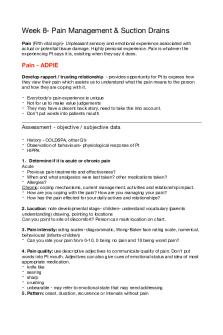
Week 8 - Lecture notes 8
- 6 Pages
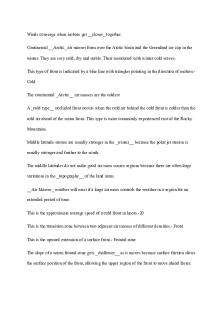
CH 8/ Lecture 8 ANSWERS
- 13 Pages
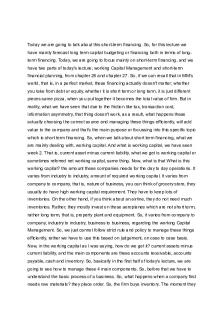
Dox 8 - Lecture notes 8
- 21 Pages
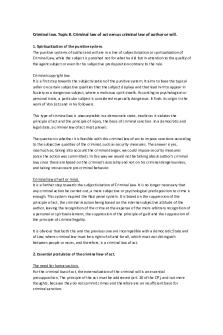
Lesson 8 - Lecture notes 8
- 2 Pages

Assignment 8 - Lecture notes 8
- 4 Pages

Week 8 - Lecture notes 8
- 23 Pages
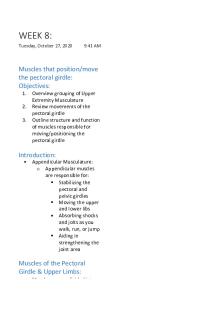
WEEK 8 - Lecture notes 8
- 10 Pages
Popular Institutions
- Tinajero National High School - Annex
- Politeknik Caltex Riau
- Yokohama City University
- SGT University
- University of Al-Qadisiyah
- Divine Word College of Vigan
- Techniek College Rotterdam
- Universidade de Santiago
- Universiti Teknologi MARA Cawangan Johor Kampus Pasir Gudang
- Poltekkes Kemenkes Yogyakarta
- Baguio City National High School
- Colegio san marcos
- preparatoria uno
- Centro de Bachillerato Tecnológico Industrial y de Servicios No. 107
- Dalian Maritime University
- Quang Trung Secondary School
- Colegio Tecnológico en Informática
- Corporación Regional de Educación Superior
- Grupo CEDVA
- Dar Al Uloom University
- Centro de Estudios Preuniversitarios de la Universidad Nacional de Ingeniería
- 上智大学
- Aakash International School, Nuna Majara
- San Felipe Neri Catholic School
- Kang Chiao International School - New Taipei City
- Misamis Occidental National High School
- Institución Educativa Escuela Normal Juan Ladrilleros
- Kolehiyo ng Pantukan
- Batanes State College
- Instituto Continental
- Sekolah Menengah Kejuruan Kesehatan Kaltara (Tarakan)
- Colegio de La Inmaculada Concepcion - Cebu